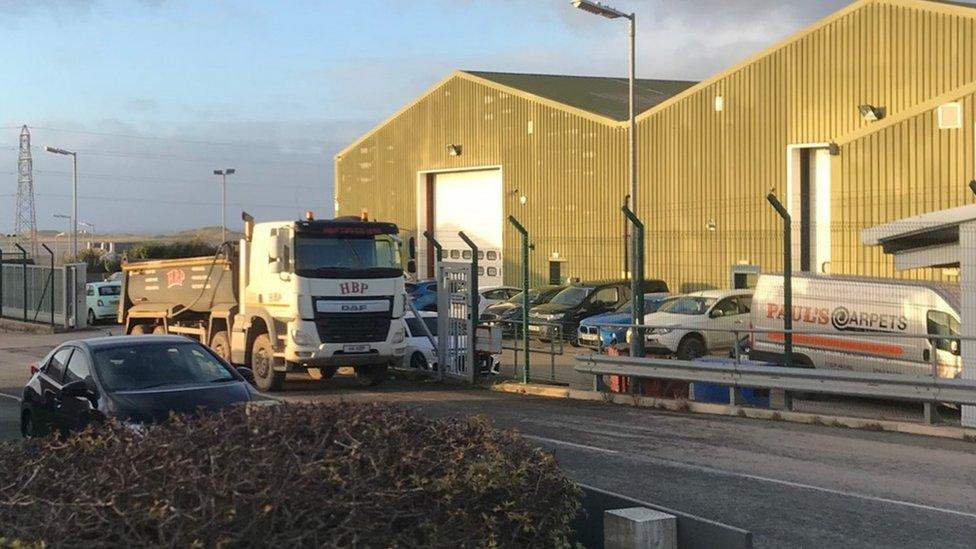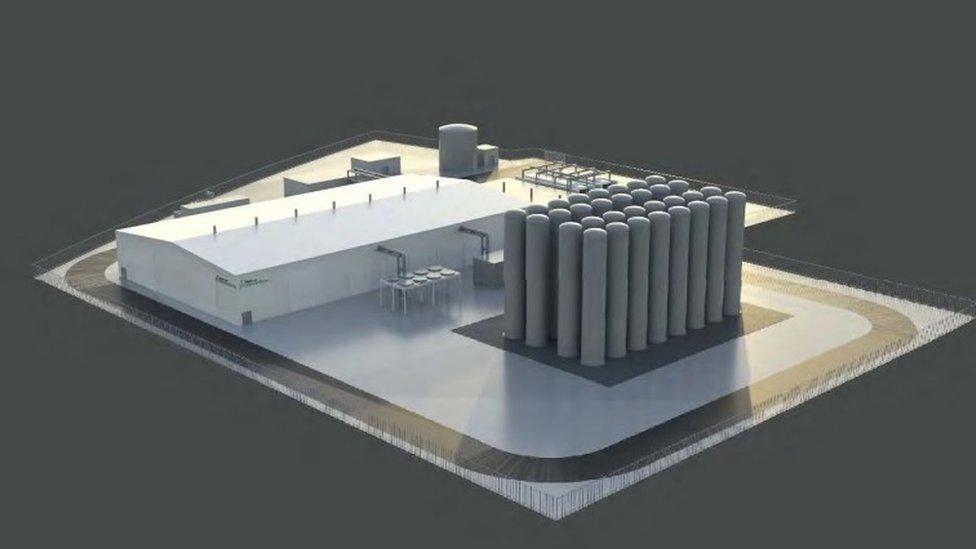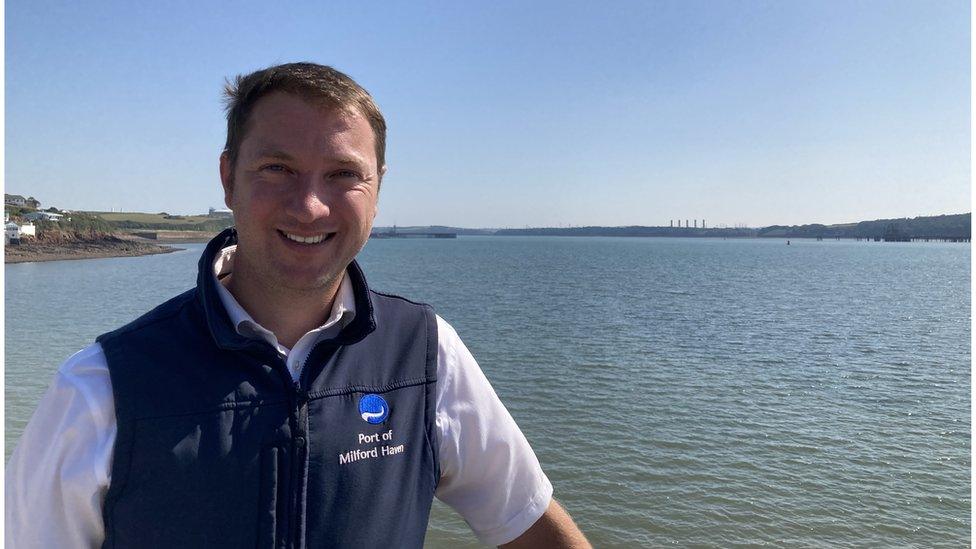Barrow: Plans for £40m 'green hydrogen' plant submitted
- Published

The plant is earmarked for a site on the Meeting Industrial Estate in Barrow
Plans to build a green hydrogen facility powered by renewable energy in Cumbria have been submitted.
The proposed £40m development is expected to be built on the Meeting Industrial Estate in Barrow, taking up around 20,000 sq metres of land.
It will supply net zero fuel to replace the use of natural gas in industry and diesel in transportation, the Local Democracy Reporting Service said.
If approved, construction could take around 18 months to complete.
The planning application, which has been submitted by Dr Chris Leach, of Carlton Power Ltd, is now out for consultation., external
Economic development consultant Stuart Klosinski said: "This will be a tremendous boost for manufacturing in the Furness area, once again putting it in the lead in adopting new forms of energy to help on the path towards net zero."
A planning, design and access statement submitted by Barrow Green Hydrogen Ltd said the use of green hydrogen is one of the "key routes" to decarbonisation.
It said that use of green hydrogen, which would be generated via electrolysis of water, will help industry transition to net zero.

How the new facility could look if plans are approved
According to the statement, at full output the 30MW hydrogen electrolyser would be capable of producing 4,680 tonnes of hydrogen per year.
However, as electricity will be only supplied by renewable energy "at times of excess generation" and low demand, around 3,000 tonnes per annum will be produced, it said.
The statement added: "The hydrogen produced by the scheme will mainly be transported via a dedicated pipeline to a nearby suitable off-taker approximately 500m north of the site (Kimberly Clark).
"This will help to significantly decarbonise their operations moving forward and help to secure the future of this key employment site in Cumbria."
The statement says it is expected that the construction period would last around 18 months.

Follow BBC North East & Cumbria on Twitter, external, Facebook, external and Instagram, external. Send your story ideas to northeastandcumbria@bbc.co.uk, external.
Related topics
- Published13 September 2021
